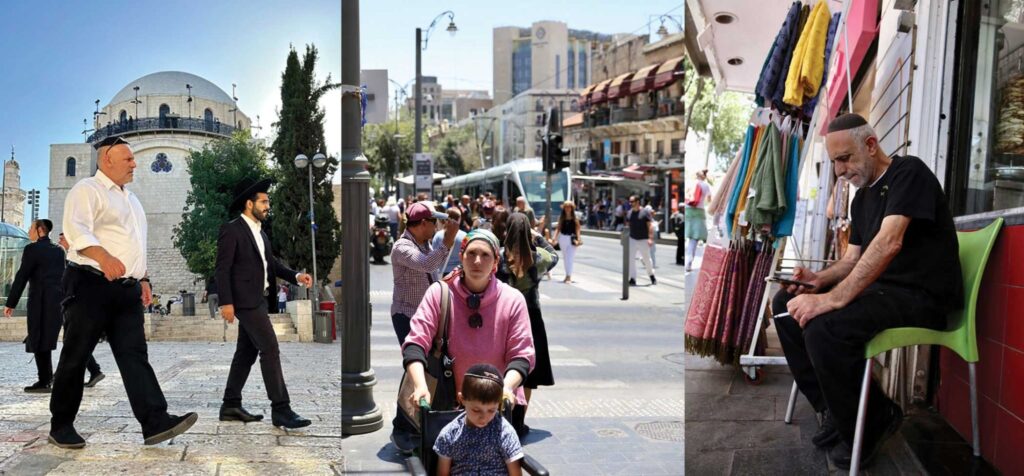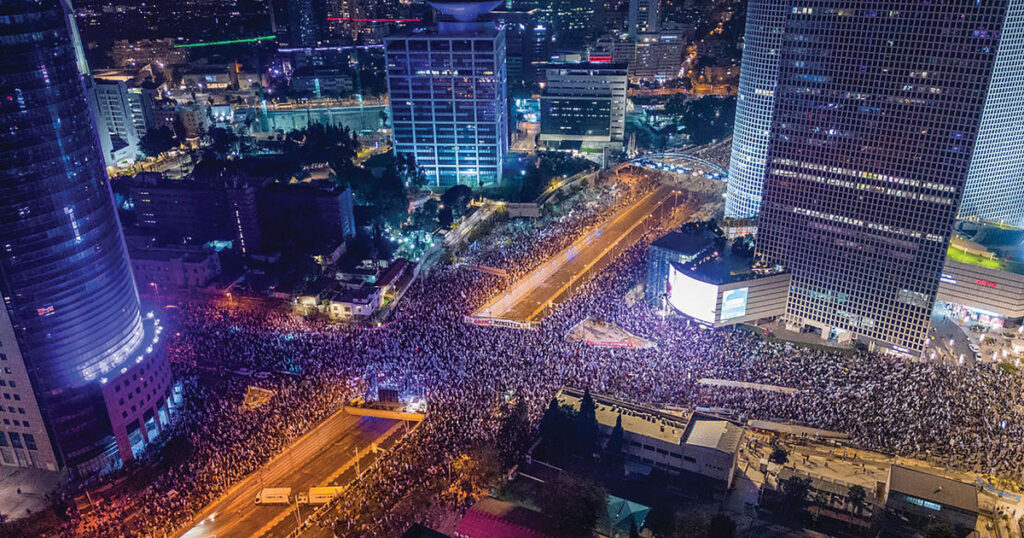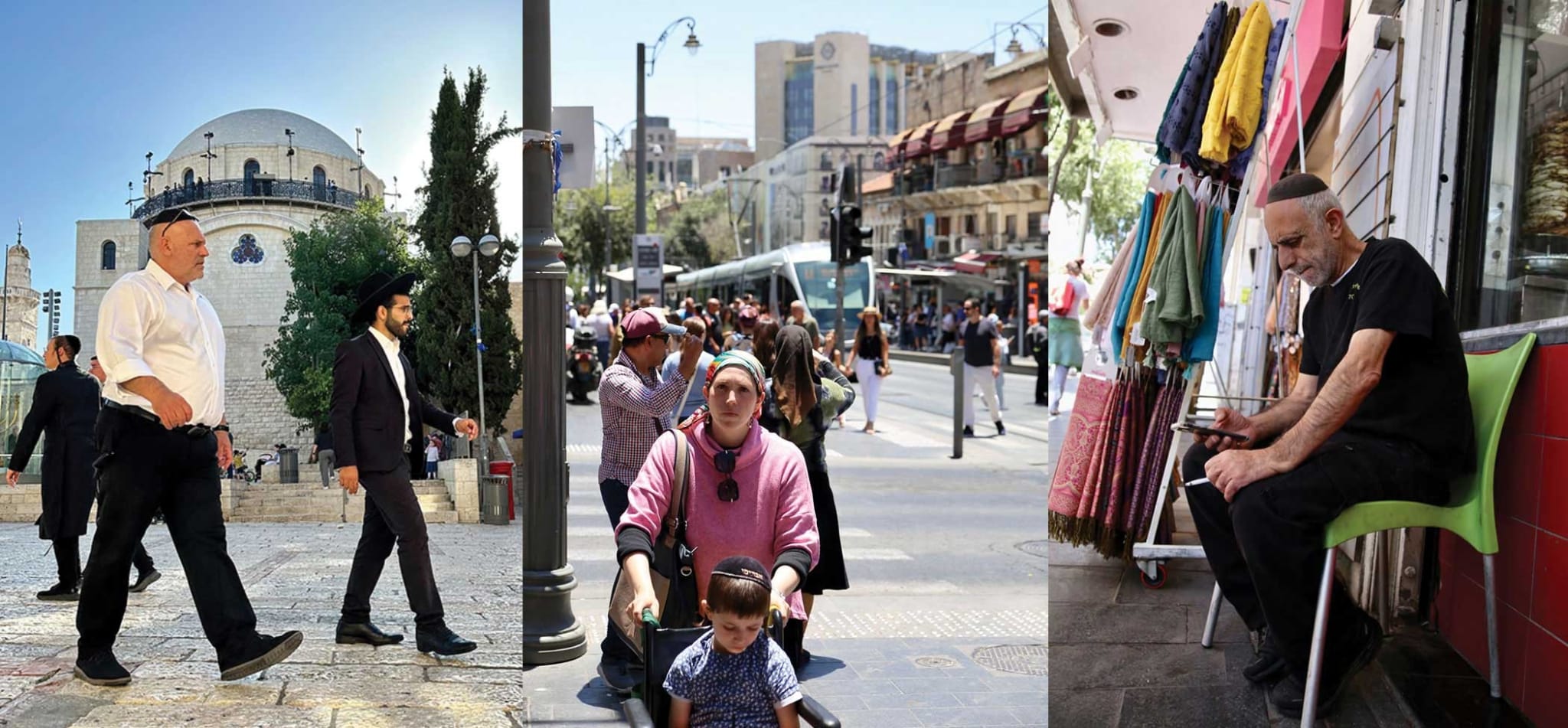Dear friends,
Shalom in His grace. Political turmoil within Israel, from protests to judicial change, is playing out for all the world to see these days. I thought I would comment on these tensions and provide some background for Israel’s recent struggles.
Differences among Early Immigrants to Israel
Zionism started as a secular movement in Western Europe primarily through the efforts of an Austro-Hungarian-born Jewish journalist, Theodor Herzl (1860–1904). His sole desire was to save the Jewish people from antisemitism and persecution. He could not have imagined the scale of destruction European Jewry would experience thirty-five years after his death at the hand of another Austrian—Adolf Hitler. Eventually, Herzl’s initiatives would secure a safe haven—a Jewish state—to protect the children of Israel from the virulent and vicious expressions of government-led antisemitism.
Inspired by the hope of a Jewish homeland in Zion and the words of Theodor Herzl, the founders of the State of Israel were mainly of Ashkenazi background (European Jewish people). Soon after the establishment of the state in 1948, there was a large wave of Sephardic Jewish immigrants to the Holy Land from North Africa. By the early 1950s, the Jewish population of Israel was 1.5 million. Of these immigrants, 650,000 came from Iraq, Iran, Syria, Egypt, Afghanistan, Tunisia, and many other countries in the Middle East and North Africa. As European colonialism declined between 1945 and 1960, Muslims took control of their newly established nations and forced the Jewish populations to leave because they vehemently opposed the establishment of Israel.
For years, Islamic nations grew increasingly intolerant of Jewish people in politics, business, and academia. These countries came to restrict Jewish people as stringently as European nations did in the days before the Holocaust. The early Israeli settlers forged a common bond over the experiences of persecution, loss of jobs, and fleeing to a new country.

Differences Lead to Conflict among Israelis
The Middle Eastern and North African Jewish populations had a distinct culture and religious life compared to European immigrants. The differences between these major groups of early Israeli settlers touched on every area of life, including marriage customs, cherished foods, synagogue liturgy, and even how they celebrated the Jewish holidays. Marriage between Ashkenazi and Sephardic Jewish families in the early days of the modern nation of Israel was rare. Israel was a divided country from the beginning because of these cultural and religious variances.
Israel’s Democratic Politics
From the very start, the Ashkenazi and Sephardic Jewish communities in Israel inherited a British-designed parliamentary system. This structure includes a prime minister, a set of democratic principles (without a constitution like Britain), and elected representatives. For the Eastern European Jewish population under communism and the Middle Eastern Jewish population, who often endured despotic leaders and persecution in Muslim countries, Israel gave them a chance to organize their lives to reflect historic Jewish values rooted in the Hebrew Scriptures.
These freedoms are some of the values Israel and the United States have in common. The two nations are democratic cousins and believe in the legal right to peaceful protest, an option most Jewish people did not have in Eastern Europe or Middle Eastern countries. Israelis also have the power of free elections—which is unique among all her neighbors—and can vote out the current government at the next election if the majority chooses to do so.
Yet, Israeli politics represents a complex mix of cultures and religious expressions, resulting in continued conflict and tension!
Secular/Religious Divide Leads to Challenges
Vast religious differences within Israel, mainly between the secular and the religious, also flame the fires of political conflict. The ultra-Orthodox Jewish people, called Haredim, have a completely different worldview than those who are secular, whether they hail from North Africa, the Middle East, Latin America, or Europe. The ultra-Orthodox want to maintain their religious observance but are also eager for Israel to become a more religious state. You know what I mean if you have toured Israel during the Sabbath! For example, you might face the long wait for a Sabbath elevator, which stops on every floor of your hotel. Public transportation is limited on Saturday, and restaurants (kosher or not) usually close before sundown Friday evening, especially in Jerusalem, and stay closed until Saturday night. (If you would like to see this for yourself, we have a very special tour coming up in December to dedicate our new Tel Aviv Messianic Center. You can find more information about our once-in-a-lifetime dedication tour by visiting chosenpeople.com/dedicationtour.)
The ultra-Orthodox also have very large families (with an average of seven children) and believe in divine birth control! As a result, Haredi population growth has been significant over the years. Some demographers in Israel predict the ultra-Orthodox will become the largest Jewish population in Israel in the next twenty or thirty years. One estimate says the Haredim will comprise 16 percent of Israelis by the end of the decade. Currently, their number is approximately 1.3 million, or 13.5 percent! Although the religious Jewish community has different reasons than believers for their views, Christians around the world appreciate some of the values of the ultra-Orthodox as they oppose abortion, transgenderism, and, of course, believe the Hebrew Scriptures and are convinced God Himself pledged the Land of Israel to the Jewish people.
In a recent survey Chosen People Ministries sponsored, we discovered how the whole country—even the young people—are becoming more traditionally Jewish. This does not mean secular young people are turning to ultra-Orthodoxy, but it does mean many more believe in God, the coming of Messiah, and the idea they are God’s chosen people. More than 70 percent of those surveyed in Israel say they believe in God. So, “the times, they are definitely a-changing”—to echo the words of Bob Dylan.

Loving Israel and the Jewish People
As believers, we are called to love and proclaim the gospel to all people—despite whatever disagreements we may have (Luke 10:27; Matthew 28:16). Moreover, we are called to love and bless the Jewish people (Genesis 12:3; Psalm 122:6). We do not need to agree with the broad sweep of political views in Israel. We are to love all the diverse groups of Jewish people in the land and outside of it “because the love of God has been poured out within our hearts . . .” (Romans 5:5).
When we pray for the peace of Jerusalem (Psalm 122:6), we are praying the Messiah—the Prince of Peace—will reign in the hearts of Israelis and all Jewish people. Specifically, we are praying for supernatural unity to enable Israel to thrive, remain safe, and allow the gospel to go forth in peace and power during these difficult days. When conditions are unsettled, the gospel roars with power.
Your Mission to the Jewish People and to Israelis
We are seeing the power of the Holy Spirit among young adults, particularly in very secular Tel Aviv. As you know, Your Mission to the Jewish People recently purchased a property in the greater Tel Aviv area. We are now in the process of building and furnishing the new Tel Aviv Messianic Center so we can offer a safe, wholesome, peaceful place for believers and seekers to worship, study the Bible, and enjoy one another’s fellowship. It will be an oasis of peace in the world of political turmoil.
We are excited about this young adult movement taking place in Israel today as the remnant is growing in the Holy Land. So, what is next? We believe the words of the prophet Zechariah will soon come to pass, and Jewish people, whether religious or secular, Ashkenazi or Sephardi, will turn to the Messiah in droves, and then the Messiah will return:
I will pour out on the house of David and on the inhabitants of Jerusalem, the Spirit of grace and of supplication, so that they will look on Me whom they have pierced; and they will mourn for Him, as one mourns for an only son, and they will weep bitterly over Him like the bitter weeping over a firstborn. (Zech 12:10)
We can have a part in the salvation of Israel and the blessings of the Lord by proclaiming the gospel to Israelis. Will you help us?
I pray you will continue to support the work of Your Mission to the Jewish People in Israel. We are standing for the Lord in Israel despite missile attacks, military threats, cultural disarray, and political differences dividing the nation and even families. It is not easy! We need your prayers, friendship, and support for the work of Chosen People Ministries in Israel.
Thank you for caring, and I hope you found this explanation behind Israel’s recent struggles helpful. Your friendship, prayers, and support mean everything to us!
Yours for the peace of Jerusalem,
P.S. We cannot tell you how excited we are to see the build-out of our new Tel Aviv Messianic Center underway! Now is the time to make a generous gift to this great effort. The center is our response to the growing body of Messianic believers, especially among the young people in greater Tel Aviv. The Lord is working powerfully, and we are increasing our “tent.” Thank you for your generosity! We need less than $2 million more to reach a total of $6.5 million in overall costs. God is faithful, and every dollar helps!
- Amount
- Complete Donation
Your gift of $50 once will help us reach Jewish people with the Gospel.
